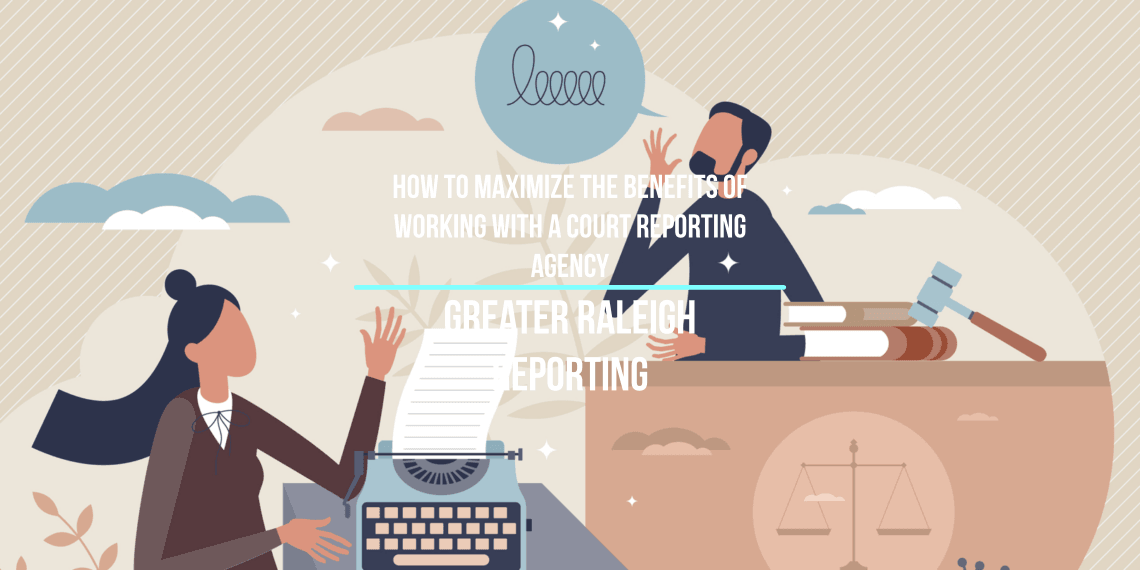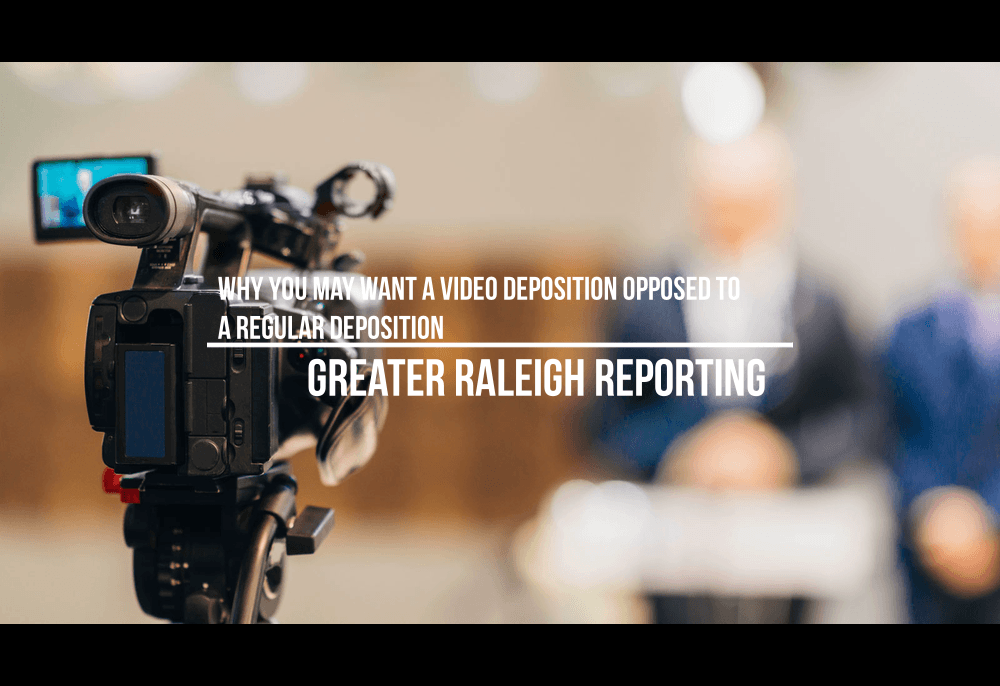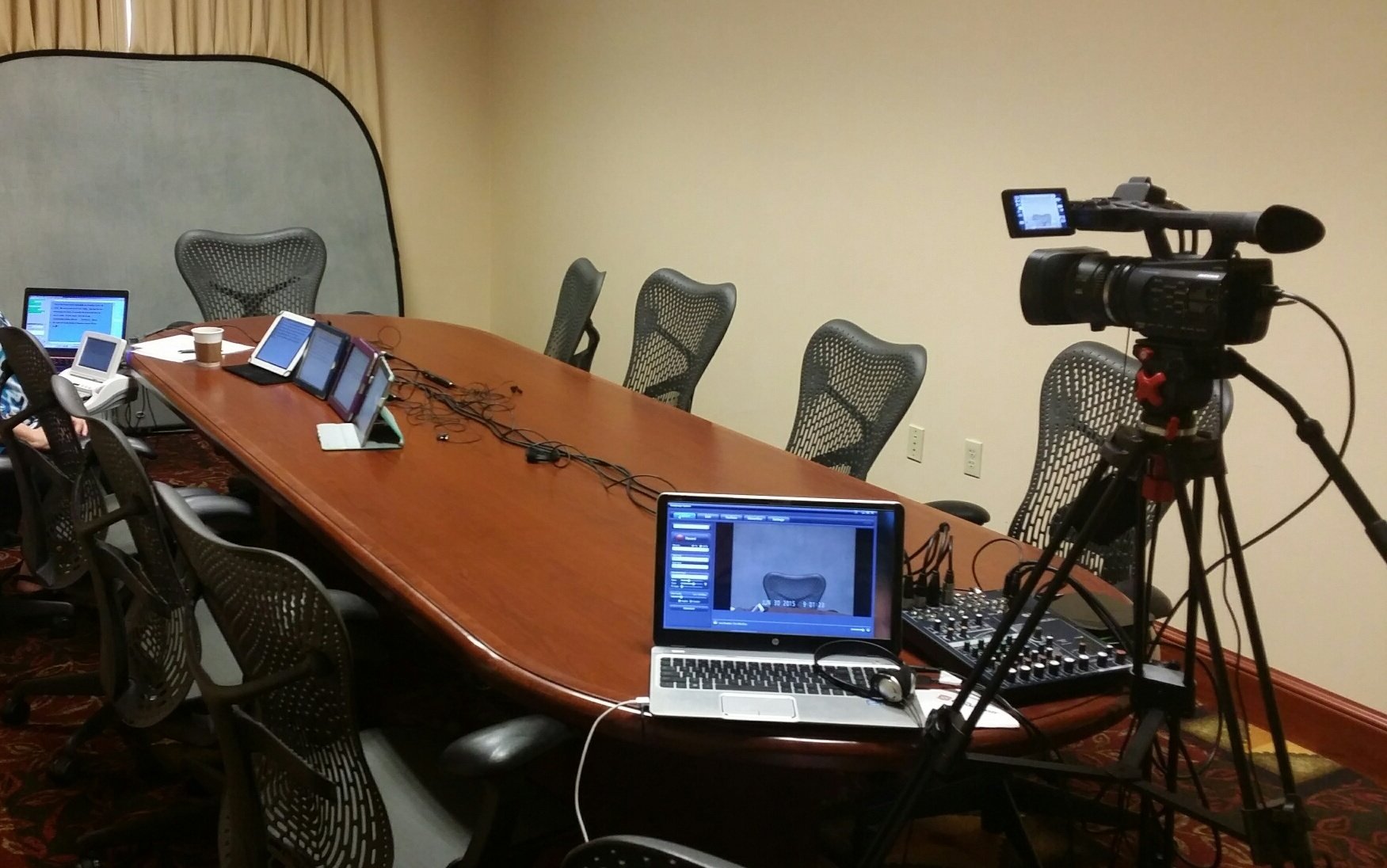Category: Uncategorized
The Olympics of Court Reporting

Taking a remote deposition effectively — especially when managing exhibits — requires good planning, the right tools, and a solid process. Here’s a clear, practical guide on how to take a remote deposition and best use exhibits:
✅ Part 1: Preparing for the Remote Deposition
1. Choose a reliable video conferencing platform
-
Common platforms: Zoom (with Zoom for Legal), WebEx, Microsoft Teams.
-
Ensure:
-
It allows screen sharing.
-
It has breakout rooms (for sidebars).
-
It allows recording (if permitted/legal).
-
2. Test your tech
-
Stable internet connection (preferably wired).
-
Headset or external mic for clear audio.
-
Webcam in a well-lit area.
-
Do a tech check with all participants (especially the witness).
3. Select a digital exhibit management method
-
Live screen sharing (simpler).
-
Pre-uploaded exhibit tools:
-
Exhibit management software: e.g., ExhibitView, TrialPad, Opus 2, Lexitas, LiveLitigation.
-
Virtual deposition platforms like Veritext Virtual or Steno Connect have built-in exhibit handling.
-
-
Cloud storage + links (e.g., Box, Dropbox, OneDrive) — not always secure enough unless locked down.
✅ Part 2: Conducting the Remote Deposition
1. Start with housekeeping
-
Confirm:
-
The deposition is being recorded (if applicable).
-
Everyone is who they say they are.
-
No unauthorized persons are present.
-
The witness isn’t using notes or outside help.
-
2. Establish exhibit protocol upfront
Example:
“Counsel, when I say ‘Exhibit 1,’ I will upload it via the share screen and then mark it officially through the platform’s exhibit tool. I’ll pause for you to review before asking questions.”
✅ Part 3: Best Use of Exhibits Remotely
📌 A. Options for Presenting Exhibits
| Method | Pros | Cons |
|---|---|---|
| Screen Sharing | Simple, direct control | Slows down if scrolling or switching |
| Pre-marked PDFs via share links | Easy access for all parties | Witness may review ahead of time |
| Deposition software tools | Professional, trackable | Learning curve, cost |
| Real-time exhibit introduction via email/Dropbox | Familiar tools | Clunky; delays possible |
The Olympics of Court Reporting

Court reporting agencies play a crucial role in the legal profession, providing essential services that contribute to the success of attorneys’ cases. Whether it’s capturing accurate transcripts, providing real-time reporting, or leveraging advanced technology, working with a reliable court reporting agency can significantly enhance an attorney’s practice. In this article, we will discuss valuable tips for attorneys on how to maximize the benefits of working with a court reporting agency.
1. Establish Clear Communication:
Clear and open communication is key when working with a court reporting agency. Clearly communicate your expectations, requirements, and any specific details related to the case. Provide comprehensive information about the parties involved, key documents, and any technical or logistical considerations. This will help the agency understand your needs and ensure a seamless deposition or courtroom experience.
2. Plan Ahead and Schedule Early:
To ensure the availability of court reporters and necessary resources, it is advisable to plan ahead and schedule depositions or other proceedings as early as possible. Inform the court reporting agency of the anticipated dates, times, and locations well in advance, allowing them ample time to coordinate and assign a qualified court reporter to your case.
3. Utilize Technology and Additional Services:
Take advantage of the technological tools and additional services offered by the court reporting agency. Real-time reporting and videoconferencing, can streamline the deposition process, facilitate collaboration, and improve efficiency. Familiarize yourself with these technologies and explore how they can enhance your practice and communication with clients and colleagues.
4. Share Case-Specific Details:
To ensure accurate and comprehensive transcripts, provide the court reporting agency with case-specific details. This includes any specialized terminology, acronyms, or jargon that may arise during the proceedings. Sharing exhibits, relevant documents, and deposition outlines in advance can help the court reporter prepare and produce more accurate transcripts.
5. Collaborate with Court Reporters:
Court reporters are valuable partners in the legal process. Collaborate with them to establish a positive working relationship. Be attentive during depositions, maintaining clear speech, and allowing witnesses to finish their statements before proceeding. Avoid speaking over one another, as it can impact the accuracy of the transcript. Communicate any concerns or requests to the court reporter promptly and professionally.
6. Provide Feedback:
Feedback is valuable for both the court reporting agency and the court reporters. Share your experience and provide constructive feedback to the agency, highlighting any positive aspects or areas for improvement. This feedback helps agencies enhance their services and ensures continuous improvement in meeting the needs of attorneys.
Working effectively with a court reporting agency can significantly enhance an attorney’s practice, improving efficiency, accuracy, and overall success. By establishing clear communication, planning ahead, leveraging technology, collaborating with court reporters, sharing case-specific details, reviewing transcripts diligently, and providing feedback, attorneys can maximize the benefits of working with a court reporting agency. This partnership contributes to a smoother legal process, more accurate documentation, and ultimately, better outcomes for clients.
The Olympics of Court Reporting

Depositions are a crucial part of the discovery process in litigation, providing an opportunity to gather sworn testimony and assess witness credibility. Traditionally, depositions have been conducted through a written transcript. However, with advancements, video depositions have gained popularity in the legal field. In this article, we will explore the advantages of video depositions over regular depositions and why you may want to consider utilizing video for your next deposition.
1. Enhanced Non-Verbal Communication:
One of the primary benefits of video depositions is the ability to capture and analyze non-verbal communication. Facial expressions, body language, tone of voice, and overall demeanor can provide valuable insights into a witness’s credibility and emotions. Video allows for a more accurate representation of the witness’s demeanor, helping attorneys evaluate their truthfulness and make informed decisions.
2. Visual Impact:
Video depositions can have a more significant visual impact compared to a written transcript. Attorneys can use visuals, such as exhibits, charts, or diagrams, to support their questions and illustrate complex concepts. Visual aids can enhance understanding, engage the viewer, and make a lasting impression on jurors during trial.
3. Preserving Witness Testimony:
Video depositions serve as a comprehensive and accurate record of the witness’s testimony. Unlike written transcripts, video captures nuances, inflections, and pauses in the witness’s speech, providing a more complete representation of their statements. This preservation of the witness’s exact testimony can be invaluable during trial preparation, cross-examination, and presenting evidence to the court.
4. Remote Accessibility:
Video depositions offer the convenience of remote accessibility. Attorneys can conduct depositions with witnesses who are unable to be physically present, whether due to distance, health reasons, or scheduling conflicts. This flexibility allows for the timely completion of depositions, saving time and resources.
5. Improved Juror Engagement:
During trial, video clips from depositions can be utilized to engage and educate jurors. By presenting compelling video excerpts, attorneys can humanize witnesses, bring their testimony to life, and make a more persuasive case. Video has a unique ability to captivate and hold the attention of jurors, increasing the likelihood of understanding and retention.
6. Effective Cross-Examination Tool:
Video depositions provide a valuable tool for effective cross-examination. Attorneys can replay specific segments of a witness’s testimony, challenging inconsistencies or contradictions in real-time. By presenting conflicting statements captured on video, attorneys can impeach the witness’s credibility and strengthen their case.
7. Deposing Expert Witnesses:
Video depositions are particularly beneficial when deposing expert witnesses. Experts often rely on visual aids, charts, or simulations to explain complex concepts. By recording their deposition testimony, attorneys can capture not only the expert’s words but also their visual demonstrations, creating a more comprehensive record.
While traditional written transcripts have long been the norm for depositions, the advantages of video depositions are becoming increasingly apparent. Video depositions offer enhanced non-verbal communication, visual impact, remote accessibility, preserved witness testimony, improved juror engagement, effective cross-examination tools, and benefits specific to expert witnesses. By considering the power of video depositions, attorneys can leverage this valuable tool to enhance their advocacy, strengthen their case, and effectively communicate their narrative to judges and jurors.
The Olympics of Court Reporting

In the world of law, the discovery process is a critical phase that allows parties involved in a legal case to obtain information, facts, and evidence from each other. This process enables attorneys to delve deep into the details of a case, uncover crucial evidence, and build a strong legal strategy. Among the various tools used during discovery, deposition transcripts stand out as the unsung heroes that play a pivotal role in the pursuit of justice.
A deposition is a formal out-of-court testimony given by a witness or a party to a lawsuit. During a deposition, attorneys have the opportunity to ask questions, cross-examine witnesses, and gather valuable information under oath. A court reporter is present to record every word spoken, ensuring an accurate and reliable transcript of the deposition.
Deposition transcripts serve as a treasure trove of information for attorneys and can be incredibly beneficial for several reasons. Firstly, they provide attorneys with a detailed account of witness testimonies. Witnesses are often the key to unraveling the truth, and deposition transcripts allow attorneys to carefully analyze their statements, identify inconsistencies, and strategize accordingly.
These transcripts are particularly valuable when witnesses are unable to appear in court during trial. Circumstances such as health issues, relocation, or unavailability may prevent witnesses from attending the trial. In such cases, deposition transcripts become the primary means through which witnesses’ testimonies can be presented to the court. This preserves the evidence, ensures a fair trial, and allows the judge and jury to consider the full scope of witness statements.
Deposition transcripts also serve as a powerful tool for impeachment. If a witness contradicts their deposition testimony during trial, the attorney opposing them can confront them with their prior statements. By presenting the deposition transcript as evidence, attorneys can effectively challenge the credibility of the witness and cast doubt on their current testimony. This can be a game-changer in the courtroom, significantly impacting the outcome of a case.
Moreover, deposition transcripts allow attorneys to thoroughly prepare for trial. By carefully reviewing the transcripts, attorneys can identify potential weaknesses in their case, anticipate the opposing counsel’s arguments, and develop effective cross-examination strategies. These transcripts provide attorneys with a comprehensive understanding of the case, allowing them to present their arguments convincingly and counter the opposing party’s claims effectively.
Additionally, deposition transcripts are invaluable for preserving the record. Court reporters meticulously transcribe every word spoken during a deposition, creating an accurate and verbatim account of the proceedings. These transcripts become a permanent record of the case, ensuring that important details and testimony are not lost over time. This is especially crucial in complex cases with numerous witnesses and extensive factual information.
In recent years, technological advancements have further enhanced the value of deposition transcripts. With the advent of electronic transcripts, attorneys can quickly search and reference specific sections of the deposition, making their review process more efficient. They can easily highlight and annotate important passages, allowing for better organization and analysis of the information.
In conclusion, deposition transcripts are the unsung heroes of the discovery process. These comprehensive records of witness testimonies provide attorneys with crucial information, aid in trial preparation, impeach witnesses, and preserve the record for future reference. Their importance cannot be overstated, as they play a vital role in ensuring a fair and just legal system. As technology continues to advance, the use of deposition transcripts will only become more streamlined and indispensable, solidifying their status as a cornerstone of the legal profession.
The Olympics of Court Reporting

A big question here in the court reporting community that has been lingering for years is whether technology can replace a realtime court reporter. We live in a world where technology is utilized in many professions and for many has even replaced them. Although there has been many advancements in technology, nothing beats the accuracy and professionalism of a realime court reporter.
Realtime & Accuracy
Having a realtime court reporter at your deposition guarantees the most accurate transcript. A live court reporter can adjust to distractions, distinguish voices, accents, and be able to prevent parties from talking over each other. Court reporters are constantly taking notes during your deposition of who may be speaking and important information that will help in the creation of your transcript. These are skills that technology is not yet capable of doing. The mistakes that using a technology such as a voice recognition system may cause could be detrimental to your case and potentially cause a mistrial. Depositions are already stressful enough for the parties involved, nobody wants to add unnecessary work and money. Court reporters also need to ask questions about terminology and spellings so they can generate the most accurate transcript for you, and they are immediately available for your convenience for any questions and/or concerns you may have regarding format of the transcript and turnaround times.
Although you might see many jobs being replaced with technology, such as a cashier at your local grocery store or the factory workers that ship out goods, or maybe even your next car might be driving itself, there is simply no voice recognition technology that can substitute for the delays and challenges that a realtime court reporter has been trained to do. Court reporting is an ever-growing, essential job that is made to preserve the integrity of the legal system and a great career path with a lot of potential.
Schedule your next deposition here.
The Olympics of Court Reporting

There is currently a massive shortage of court reporters throughout the country, and since more than 70 percent of working court reporters in the United States are over the age of 46, the shortage is only going to get worse in the next few years. Court reporters, who ensure that an accurate transcript of deposition or courtroom
proceedings is created to protect the rights of all parties, are an integral part of the justice system.
Here are four reasons you should consider becoming a court reporter, either for your first profession or a mid-life change.
1. Training is shorter and less expensive than other specialized professions.
While many specialized professions require either a college degree then post-graduate education or a diploma from a trade school followed by years of apprenticeship, your training to become a certified court reporter can be completed in as little as six months (depending upon the method you choose and whether you pass the certification exam on your first attempt). Digital court reporting takes the least amount of time, followed by voice writing. Training to obtain certification as a stenotype reporter takes the longest amount of time, with an average of two years. Many court reporting training courses now take place online and, compared to the cost of a four-year degree, court reporting school is a bargain. Some new reporters spend as much money purchasing their equipment as they do for tuition.
2. Flexible Hours and Travel
Freelance court reporters can choose the number of deposition assignments they accept from the agencies they contract with to create a full-time, part-time, or sometime income. This flexibility makes court reporting an ideal career for caregivers or parents who wish to work only when the kids are in school. Courtroom-based reporters’ schedules are more rigid, but generally offer more vacation days and paid holidays than the corporate world. Some court reporters even travel throughout their state or region of the country taking depositions or recording hearings.
3. Consistent Demand
Court reporting as a profession originated in ancient times, when court reporters were called scribes. The technology changes over time – for example, court reporters no longer take down the record using manual shorthand – but as long as there are courtrooms and lawsuits there will be a need for court reporters to serve as impartial guardians of the record.
4. High Income Potential
The median salary for a court reporter in a recent Bureau of Labor Statistics study was $49,500 per year. Depending on the type of court reporting one chooses and whether a reporter pursues a realtime certification, that number can easily be doubled.
If you’re interested in learning more about court reporting schools, here are links to schools compiled by the three main court reporting certification organizations.
NCRA: https://www.ncra.org/home/students-teachers/Schools-and-programs/ncra-approved-court-reporting-programs
NVRA: https://nvra.org/nvra-education-resources-listings
AAERT: https://www.aaert.org/page/ApprovedSchools
The Olympics of Court Reporting

There are multiple reasons depositions are taken in a case. Most commonly, depositions are taken as part of the discovery process, as each side wants to learn what evidence the other side will possibly present under oath at trial. Sometimes a deposition is taken for use at trial because the witness isn’t available to be physically present in the courtroom. In any event, sometimes the deposition ends up deciding the trajectory of the case. If a witness is particularly compelling – in a good or a bad way – attorneys can decide to settle the case and avoid a potentially bad trial outcome.
One of our reporters tells the story of how this happened in her family.
A month after my oldest son turned 16, he was involved in a rear end collision. He was at fault, but there wasn’t much damage to the other car. The driver of that car, a middle-aged woman, was driving with her teenager and said she was okay that day. Now, being a court reporter I knew that it was likely she’d be sore and maybe even actually be hurt after the adrenaline wore off. It turned out that she lived in our subdivision, and we exchanged information.
Time went by, and we would wave when passing each other in the neighborhood and were friendly, but she never mentioned anything about being hurt. One month before the statute of limitations passed, she filed suit asking for $220,000 for neck and back injuries.
We were shocked!
During the course of discovery we found out that she was claiming that neck surgery and permanent disability she had suffered was caused by the rear-end accident. We also found out that she didn’t see a doctor for five months after the accident and had pre-existing neck and back issues. It looked like the case was going to trial, and then they took my son’s deposition.
Our attorney told me afterward that my son was composed, well-spoken, and came across as polite, mature, and responsible. His appearance and demeanor didn’t fit the narrative the other side was intending to paint at trial, which was one of an irresponsible 16-year-old boy who was just driving far too fast for conditions. The next morning, the other side accepted a $5,000 settlement.
It should be noted that this isn’t a regular occurrence, and it could have also gone the other way. But, the story illustrates how attorneys use depositions to gauge how a witness will appear to a jury so they can modify their approach to the case if needed.
The Olympics of Court Reporting

At the beginning of nearly every deposition, attorneys give witnesses a number of standard “ground rules” to ensure that a clear, accurate record is captured. One such instruction is that the witness should not guess or speculate in their answers.
A California man nearly found out the hard way just how important it is to heed that instruction. William J. Cannon was injured in a work-related accident on a Navy ship, the USS Coronado, in 2013. According to an incident report, Cannon’s injury took place in November, 2013; therefore, Cannon had until November 2015 to file a lawsuit under the statute of limitations.
Cannon filed suit on November 17, 2015, and was ultimately deposed in the case. During the deposition, Cannon testified that “the accident occurred a day or two after the vessel returned from sea trials,” which were in August, 2015, not November. If the accident truly took place in August, Cannon’s suit would be barred by the statute of limitations.
After the deposition Cannon filed a declaration stating that the accident occurred on November 25, 2013. Still, defense counsel pursued a Motion for Summary Judgment in the case, arguing that Cannon’s declaration should be excluded as a “sham affidavit.” U.S. District Court Judge Cathy Ann Bencivengo ruled in favor of Defendants and dismissed Cannon’s case.
Cannon appealed, and the Ninth Circuit Court of Appeals ruled last week that his case was dismissed in error.
“The district court abused its discretion in excluding Cannon’s post-deposition declaration under the ‘sham affidavit’ rule….Although the declaration was inconsistent with the portion of Cannon’s deposition testimony concerning the proximity of the accident to the return of the vessel from sea trials, Cannon never identified the date of the accident in his deposition, and Cannon presented evidence that the accident occurred in November. The incident report, which Cannon identified as ‘accurate’ during his deposition and claimed to have filled out on the date of the accident, contains the November date. The record does not thus present a ‘clear and unambiguous…inconsistency between a party’s deposition testimony and subsequent affidavit.’ ”
The complaint recites that the incident occurred “[o]n or about November 25, 2013.
Fortunately for Cannon he had other documents and facts on his side and can still pursue his action, but the incident highlights just how important it is that witnesses refrain from any type of speculative or non-specific answers in their depositions.
The Olympics of Court Reporting

Attorneys and court reporters alike refer to deposition and courtroom transcripts as “accurate, verbatim” transcripts. What exactly does that mean?
First, it’s important to understand what a transcript is. A transcript is a written account of a conversation, interview, hearing, or other meeting which involves dialogue or presented information that may be useful for reference at a future date. A verbatim transcript is a transcript which captures each moment and utterance with complete, accurate detail—in other words, a truly verbatim account.
In a verbatim transcript, there is no clean-up of grammatical errors or mispronunciations. Every utterance is to be recorded as it was made, often necessitating the creative use of punctuation in order to accurately convey false starts, repetitions, and other non-standard speech elements. Non-verbal sounds are usually noted within parentheses, such as to describe coughs, laughter, or ambient sounds like doors opening and closing.
Creating a verbatim transcript also requires nuanced attention in order to faithfully depict important information such as deep breaths, long pauses, and auditory cues such as sighs. All of these seemingly minor elements of human interaction help to paint a more vivid picture of a conversation, which can depict the mood or mental state of a respondent.
Court proceedings and other such legal hearings often require detailed accounts as the transcripts may be later referenced to identify conflicting statements made by a plaintiff or defendant, for example. Many organizations may utilize verbatim transcripts as well, including government agencies, medical groups, and educational institutions.
GREATER RALEIGH COURT REPORTING HAS CERTIFIED REPORTERS WHO HAVE EXPERIENCE IN PROVIDING ACCURATE VERBATIM TRANSCRIPTS. BOOK YOUR NEXT DEPOSITION ONLINE NOW OR CALL US AT: 919-586-8011.
The Olympics of Court Reporting

Well, this is one way to keep a witness and opposing counsel
off kilter!
One Pennsylvania attorney routinely held depositions in his
home, in the dining room, while family members and the family dog wandered
loudly throughout. Proceedings were even casually interrupted proceedings to
ask about “evening plans.” The attorney didn’t see the problem; he
claimed he just wanted to be close to his files so he’d have everything he
needed.
It’s not completely unheard of to hold a deposition inside a
home. Usually this occurs in the case of an expert witness who lives in a rural
area or who just prefers to be deposed at their home, and the depositions
almost always occur by telephone or videoconference, and when no one else is home
so there will be no interruptions or distractions.
In this case, Reid
vs. Temple University, et al., the plaintiff’s attorney noticed and took
two depositions in his home although defense counsel had offered free use of
their conference room. At that point defense counsel filed a Motion for
Protective Order to prevent plaintiff’s counsel from holding future depositions
in his home, and to compel that future depositions be held at a “suitable
professional location.” According to the opinion issued by District Judge
Harvey Bartle III:
“During the two completed
depositions it was possible to hear family members in the house when they were
speaking on the telephone or to each other. When the sounds became particularly
loud, plaintiffs’ counsel, at the request of defense counsel or the court
reporter, had to intervene to restore quiet. The ringing of the telephone with
incoming calls and announcements occurred. Family members passed through the
dining room and at times interrupted plaintiffs’ counsel about evening plans or
to ask the court reporter and defense counsel to move their cars. The movement
of people in the adjoining kitchen was visible, and noises and smells emanated
from the cooking that was taking place.
“A dog wandered throughout the
house and came and went through a dog door behind the chair where the witnesses
sat. Not surprisingly, the examination of witnesses came to a halt on a number
of occasions as a result of all this extraneous activity…. According to
plaintiffs’ counsel, he noticed the depositions for his home because he ‘wanted
to have access to his full file in case unanticipated issues arose at the
deposition.’ He characterizes defense counsel’s pending motion as ‘based on a
few trivial alleged distractions.’ … While admitting that a dog was in the
house, he remembers that one deponent ‘seemed to enjoy the dog immensely,
petting him with enthusiasm and cooing to him with affection.’ He says nothing
about all the other participants….
Citing Rule 26(c)(1) of the Federal Rules of Civil Procedure,
which protect deponents from having their testimony taken under circumstances
that constitute an “annoyance” or “undue burden,” Judge
Battle concluded:
“Depositions, absent
compelling reasons such as the illness or incapacity of a witness, should be
taken in a professional setting devoid of domestic or other distractions. While
plaintiffs’ counsel’s dining room is undoubtedly and rightly a place of
commensal conviviality and canine companionship, it is not an acceptable forum
for lawyers to examine and defend witnesses under oath….”
It’s amazing that a practicing attorney would have to be
told such a thing,
At Greater Raleigh Court Reporting, we offer complimentary conference rooms (free of distractions) or we can help you find one all over North Carolina. To schedule online, please call us at 919-586-8011 or use our online scheduler.